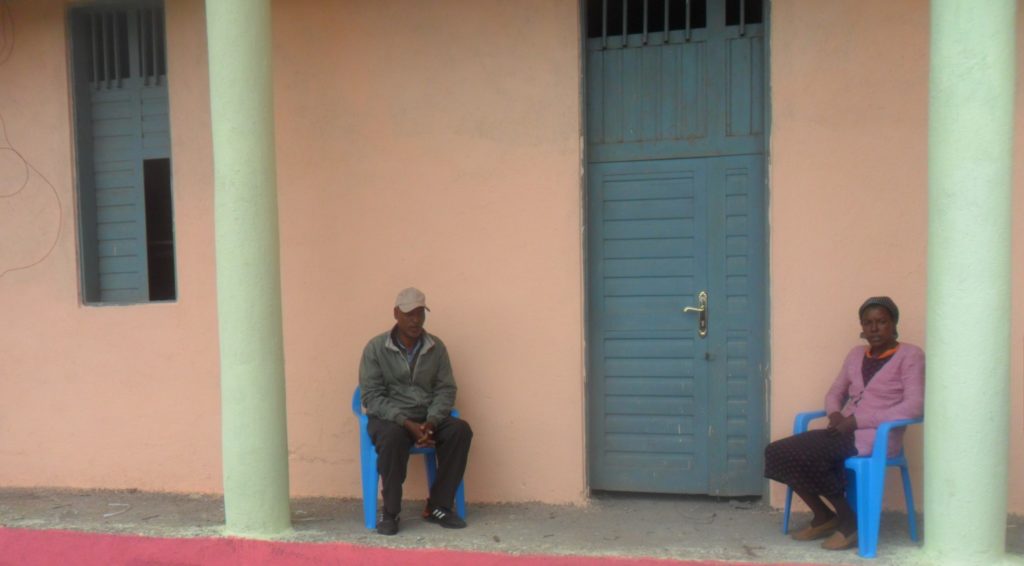Feed the Future Innovation Lab for Small Scale Irrigation
“Our collaboration with ILSSI has enabled us to increase milk production and sales.” — Alemu Demoze, Chairman of the Genet Lerobit Dairy Cooperative in Ethiopia
Irrigated fodder production is a recent development in Ethiopia. But now, after years of collaboration with the Feed the Future Innovation Lab for Small Scale Irrigation (ILSSI), both individual farmers and dairy cooperatives have started using small scale irrigation techniques and new forage varieties to produce fodder year-round for livestock feeding. ILSSI has provided technical support to the dairy cooperatives in its project sites, which has helped these entities to establish a new milk-collection center, a forage seed store, and sales shops.
Cooperatives boost incomes and value chains
Alemu explained that membership numbers in the Genet Lerobit Dairy Cooperative have increased from 57 members 3 years ago to 180 now, due to the growing interest in irrigated fodder production and the market opportunities created for fluid milk:
"Currently, we are supplying about 300 liters of milk daily at a price of 22 bir (US$0.50) per liter to a milk processor in Bahir Dar town. This volume of milk is up by more than 50 percent from what we used to supply a few years back."
The cooperative’s engagement in forage seed multiplication and marketing is expected to provide an additional source of income for its members, while also strengthening the fodder value chain in the communities.
"We have allocated 1.5 hectares of dedicated land for forage seed multiplication and formed farmer interest groups, which showed interest in multiplying forage seeds and planting materials on their own land and supply to the cooperative," said Alemu.
According to him, the cooperative is planning to use both individual farms and the land secured through the cooperative as a source of forage seed and planting materials.
Explaining further the cooperative’s preparations to strengthen the irrigated fodder value chain, he added:
“With the support we received from ILSSI, we have constructed a forage seed store, milk-collection and processing rooms, as well as sales shops. These facilities will considerably increase our market share and incomes in the near future.”
The cooperative’s management believes they are now in a good position to increase dairy production in the community, using irrigated fodder technologies and new market opportunities created through the collaboration with ILSSI and other development actors.
“We are in discussion with the local extension office so that they can support us in certifying the forage seeds that we plan to produce this season. We are also in discussion with the livestock and fisheries sector development project to create market linkages for forage seeds,” Alemu explained.
Providing protection against COVID-19 disruptions
Habebo Dairy Cooperative, located in the Lemo district of Ethiopia’s Southern region, is another entity engaged in irrigated fodder development. The cooperative provides services to its members by collecting fluid milk and processing it into butter and cheese, which allows the cooperative members to sell these higher-value products to consumers. Over the past three years, the support the cooperative members received from ILSSI enabled them to grow their capacity and become more resilient to market fluctuations.
“Our collaboration with ILSSI came at a critical time for us,” said Aberash Tamire, the chairwomen of the cooperative. “When the COVID-19 pandemic disrupted market chains, we were able to cope with problem by processing our milk into shelf-stable and easily transportable products, such as butter and cheese. Other farmers who didn’t have the capacity to process milk were seriously affected by the movement restrictions and market disruptions for fluid milk.”
This cooperative has managed to construct a well-designed milk processing room, a forage seed store, and sales shops in their compound with a grant received from ILSSI.

Habebo Dairy Cooperative management members in their newly set up milk-collection and shop center (Photo Credit: ILRI/Tigist German).
“Our members are highly indebted to the support provided to grow our capacity. This collaboration with ILSSI has also motivated other farmers to apply for cooperative membership, and currently the total membership has reached 220 households, which is up by 40 percent compared to two years ago. Some of the newcomers recently bought crossbred cows and joined us,” explained Aberash.
Tackling land and water challenges
In the areas where these two dairy cooperatives are located, land remains a major constraint to agricultural productivity. There is a lot of competition for land to produce food crops and fodder. However, adoption of irrigated fodder production has helped ease the competition for land, as farmers are now able to produce fodder year-round on a small plot of land.
In addition, ILSSI is working with national partners to provide alternative forage varieties that can be grown with minimum water and nutrient input and at the same time supply the needed fodder for farmers’ livestock. Adoption of such new varieties would further ease the pressure on natural resources, and cooperative members are currently participating in the evaluation of the new forage varieties for wider scaling.
Finally, ILSSI has planned a series of training programs to build the capacity of the cooperatives in forage seed multiplication and marketing businesses. The impact of the ILSSI intervention is now visible in the project sites:
“We are very happy at the moment because we are making tangible progress in improving our income and livelihoods,” concluded Aberash.
This project overview was written by Aberra Adie (International Livestock Research Institute)




